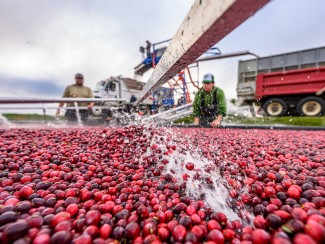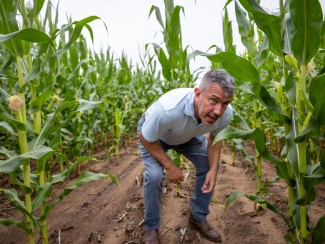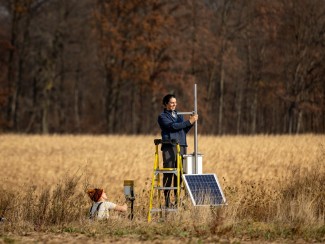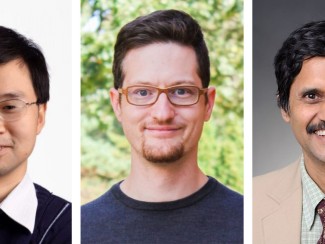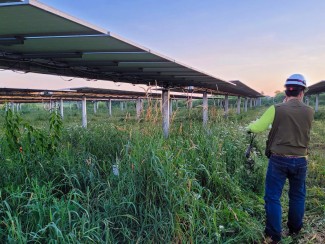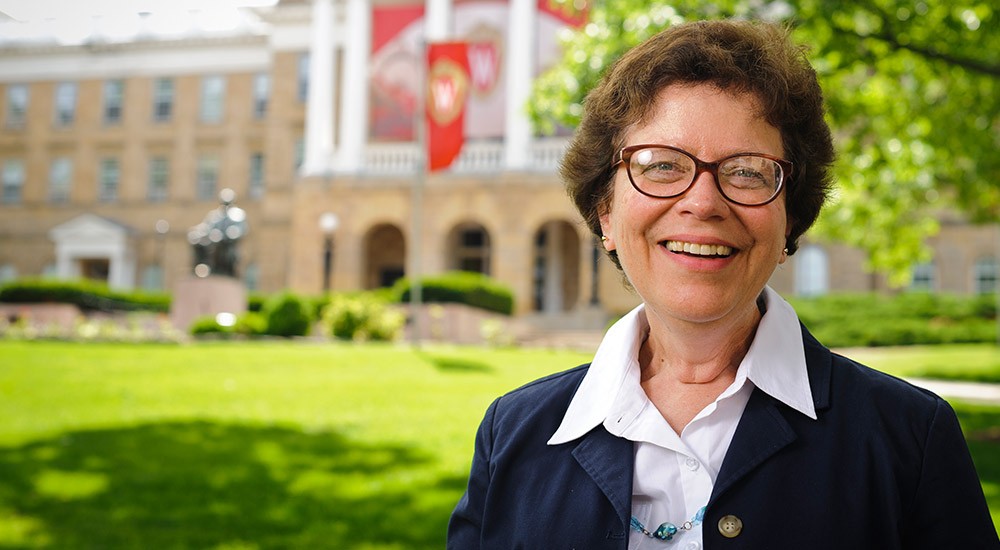
Since the days of John Muir and Aldo Leopold, sustainability has been woven into the fabric of the University of Wisconsin–Madison. Our commitment to conservation and stewardship runs through our campus in our educational offerings, research projects, facilities operations and outreach to the state.
We have an important story to tell about how this work is affecting our campus and the world in a positive way. We’ll be telling this story more frequently this academic year and we’ve created a short summary of some of our current efforts.
The UW-Madison Office of Sustainability, created in 2012 to align academics, research and campus operations to advance campus sustainability goals, serves as a campuswide resource. Here are a few ways UW-Madison is creating a more sustainable campus:
Education
Perhaps our most important long-term contribution to sustainability is educating students, who will be involved in these issues as citizens and through their jobs.
- At least 285 undergraduate courses and 112 more for graduate students incorporate learning on sustainability, according to a 2013-14 preliminary analysis by the Office of Sustainability. UW–Madison offers 31 bachelor’s degrees, 44 undergraduate majors, and six undergraduate certificates in topics related to the environment and sustainability, along with 33 environment- and sustainability-related master’s degree programs.
- At the Ph.D. level, students focused on sustainability are dispersed across disciplines. The Nelson Institute Environment and Resources Ph.D. program graduates eight to nine students per year, and enrolls about 62 students each year.
- Our teaching is not just focused on our UW students. The Wisconsin Energy Institute, in partnership with the Great Lakes Bioenergy Research Center, provides educational materials and professional development opportunities around clean energy to K-12 teachers.
Research
Progress on sustainability requires new knowledge about how to increase the use of renewable energy, how to develop more sustainable technologies, and how to mitigate the environmental effects of past harmful practices.
- There are more than 200 sustainability and environmental studies research projects currently underway at UW-Madison, supported with an estimated $350 million in externally generated funding. Our largest federal grant focuses on alternative ways to generate renewable fuels.
- The UW-Madison Center for Sustainability and the Global Environment in the Nelson Institute brings together collaborators from disciplines across campus and from universities in the U.S. and Canada to examine the relationship between human actions and the Earth’s complex environment systems, and develop adaptive strategies to sustainably manage natural resources and preserve human health.
- We are deeply involved in research on agriculture and wilderness/water areas in the state of Wisconsin, helping farmers and property owners understand how to reduce runoff, keep Wisconsin’s lakes healthy, and preserve the environment that makes this state so attractive to those who live and play here.
Our Campus
Of course, we can’t just talk about sustainability; we also have to incorporate it into the ways in which we utilize our facilities and maintain our campus.
- We are committed to renovating and constructing sustainable buildings, including many designed for LEED certification. The campus has invested $63 million in energy conservation projects over the last decade, reducing its energy footprint by 27 percent per square foot. Many campus buildings now have solar or geothermal systems, green roofing and/or designs that take advantage of natural light.
- The university began purchasing renewable energy credits from Madison Gas & Electric in 2009. They now account for 15 percent of each year’s electricity use. MG&E has committed to providing 30 percent of its electricity from renewable sources by 2030, so if the university continues to buy credits for 15 percent of its electricity consumption, its total renewable use will be above 40 percent by 2030.
It is important to recognize that sustainability improvements on campus often require financial investments. Our buildings are state-owned, and making improvements to our facilities to make them more sustainable often requires state approval and funding. While the state provided some funding for specific building efficiency projects over the last two years, we still have a significant backlog of building and maintenance projects and made increased funding for the Capital Budget one of our top priorities in the 2017-19 state budget.
Former Wisconsin governor and U.S. Sen. Gaylord Nelson, the namesake of The Nelson Institute for Environmental Studies on our campus, once said, “The ultimate test of a man’s conscience may be his willingness to sacrifice something today for future generations whose words of thanks will not be heard.” The dream of Muir, Leopold and Nelson to leave future generations with a world as good or better than the one we came into continues to inspire us today. To learn more about our efforts, visit https://sustainability.wisc.edu/.

